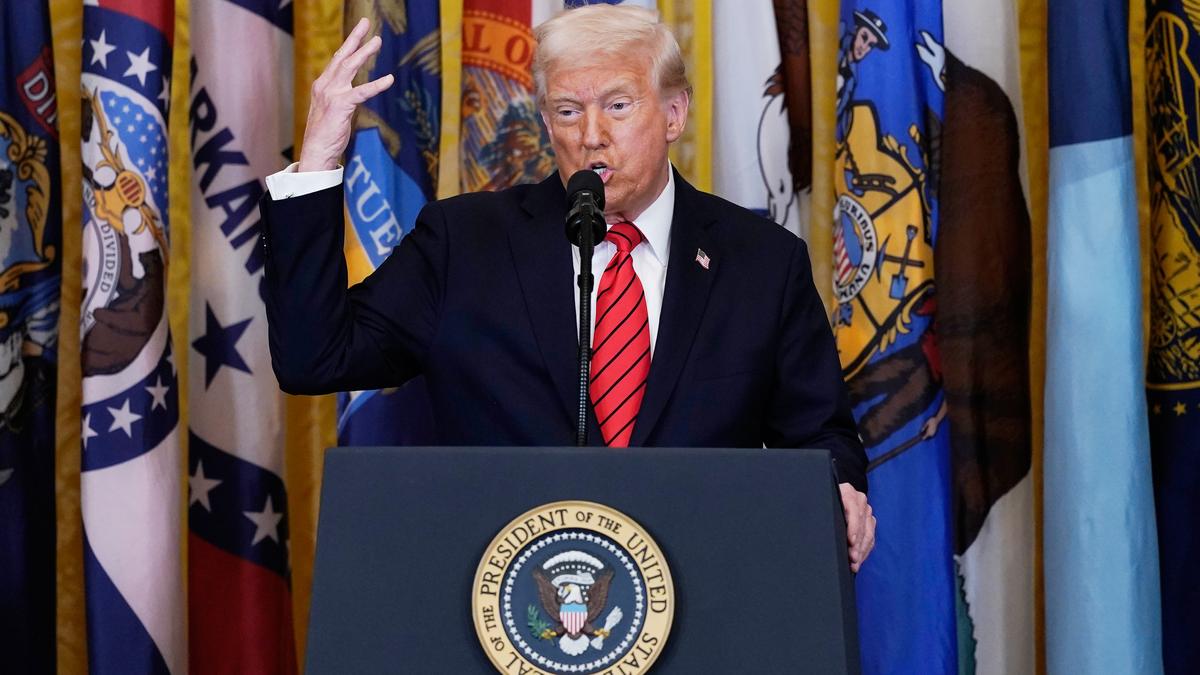
Trump tariffs on Venezuela crude buyers are a potent new tool of U.S. pressure
The Hindu
Tariffs on sanctioned oil buyers could be a potent tool for U.S. sanctions enforcement, but may face hurdles.
A U.S. plan to slap tariffs on countries buying sanctioned Venezuelan oil marks an unprecedented and potentially potent mixture of punitive economic measures against a geopolitical foe that Washington could replicate against other countries like Russia and Iran, analysts said.
The U.S. has maintained sanctions on all three countries for years to hobble their energy revenues, but Washington has tended to enforce sanctions using designations that isolate people or companies that break them from the U.S. financial system.
On the night of Monday (March 24, 2025), President Donald Trump broke with that tradition, signing an executive order authorizing his administration to impose blanket 25% tariffs under the 1977 International Emergency Economic Powers Act on imports from any country that buys Venezuelan crude oil and liquid fuels.
Analysts said there are at least two benefits to using tariffs instead of targeted designations as the penalty for violating sanctions. Tariffs deliver pain across a country’s entire economy, and they are simpler to enact than designations.
“Use of IEEPA to immediately implement broad and sweeping tariffs without any process or procedure remains an unprecedented but potentially extremely powerful weapon in Mr. Trump’s trade and foreign policy arsenal,” said Glenn Schwartz, director of energy policy service at consultancy Rapidan Energy.
“Assuming it withstands litigation, I can see this becoming an attractive option for the Mr. Trump administration to exert pressure on U.S. adversaries in addition to traditional sanctions,” said Fernando Ferreira, director of Rapidan’s geopolitical risk service.
“Enforcement could be easier than traditional sanctions, as you only need to monitor country-level dynamics, and we all know where the barrels are going.”

 Run 3 Space | Play Space Running Game
Run 3 Space | Play Space Running Game Traffic Jam 3D | Online Racing Game
Traffic Jam 3D | Online Racing Game Duck Hunt | Play Old Classic Game
Duck Hunt | Play Old Classic Game











